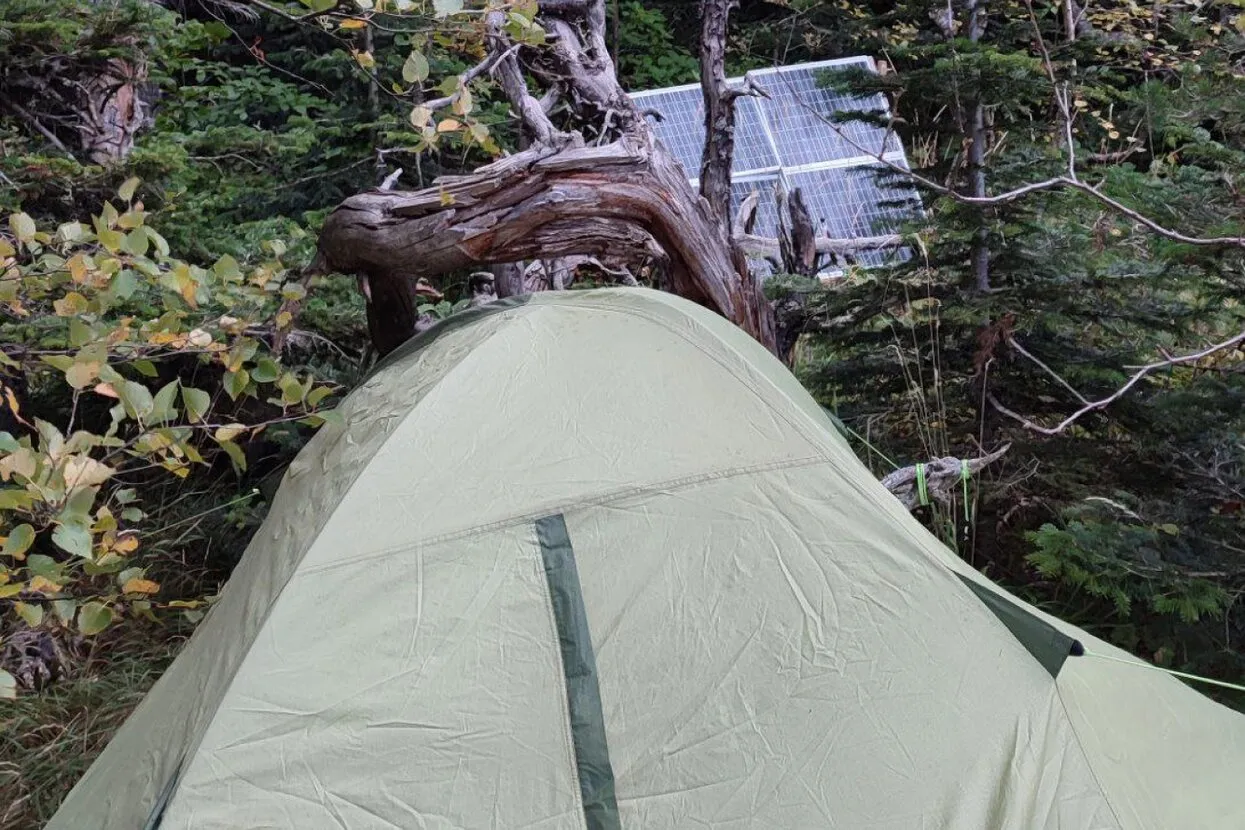
‘It’s not the most comfortable place, but I’m free’ The IT specialist waiting out Putin’s draft alone in the forest
Vladimir Putin’s September 21 mobilization announcement sparked a massive new wave of emigration out of Russia; in early October, Forbes Russia reported that roughly 700,000 people had left the country in the previous two weeks (the Kremlin has denied that the real number is that high). Other potential conscripts, unable or unwilling to leave the country altogether, have gone into hiding domestically. One man in the latter group is an IT specialist from southern Russia. Rather than escaping to a hotel or hostel, which are liable to be raided by the authorities, he’s spent the last few weeks camping in the forest — and has kept a public record of his experience on Telegram. The independent Russian outlet Mediazona got in touch with the anonymous outdoorsman to find out why he chose the wilderness over migration. Meduza summarizes their interview.
IT-specialist Adam Kalinin (name changed) told Mediazona that when he first learned about Russia’s mobilization campaign, he was shocked. He doesn’t support the Russian invasion of Ukraine, and he hasn’t kept silent about it — earlier this year, he was fined and sentenced to several nights in jail for taking part in anti-war protests. He decided he didn’t want to wait around for a draft order — but unlike several of his friends, he didn’t feel prepared to leave the country. So he decided to disappear into the forest.
“The whole time, I could see what my options were: either I’ll go to the store, and then they’ll take me to the military commissariat in handcuffs, or I’ll be in the forest, in conditions that aren’t the most comfortable, but I’ll be free. It wasn’t exactly an easy decision,” said Kalinin.
Still, Kalinin told Mediazona that his family supported his choice. He spent about a week preparing for the retreat. In the last few years, he said, he’s spent a lot of time camping, so he already had experience as well as much of the equipment he would need, including a chainsaw, a handsaw, an ax, and an Internet modem. All he had to buy were some solar panels.
The Logical Forester on Telegram
Once in the forest, Kalinin set up two tents. The first was in a spot with “no wind, some sun, in a meadow — everything’s great,” but “no Internet”; that’s where he sleeps. The second tent is a three-minute walk away from the first, where “the weather’s not great if the wind is blowing, [...] but at least there’s Internet.” That’s where he works — he calls it his “office.”
Kalinin uses his Telegram channel, The Logical Forester, to keep his followers apprised of forest life. He usually gets up at about 7:00 am, when “the birds start chirping.” Then he cooks breakfast on a small gas stove. Before he set up camp, Kalinin and his wife left a large container of food about an hour’s walk away, close to the road, because of its size. Now, he told Mediazona, he treats it like “a store,” making the walk every time he wants to stock up on “canned goods, ramen noodles, tea, coffee, [or] sugar.” He collects drinking water from the rain.
On weekdays, Kalinin spends eight hours a day working. The rest of the time, he works on improving his shelter. While he doesn’t have any construction experience, he does have access to YouTube and a desire to build “something more serious” — “maybe not a tent, but some kind of little cabin.”
Life in the woods isn’t always idyllic; Kalinin admits he misses having a washing machine and a shower. To wash himself, he uses wet wipes that he brought with him. But he has no doubt that draftees have it much worse: “People get sent to those training units, and the conditions they live in are just wild. It’s every man for himself; they make you buy everything yourself. And what’s more, it’s unclear why you’re there at all. Some people say it’s your debt to the motherland, some people have other explanations. But I don’t see any benefits at all. We’re not protecting anybody, of course — we’re attacking them. And that’s really sad.”
Kalinin isn’t worried about being found; it’s already been weeks since he’s seen another person. “I’m not suffering too much from it,” he said. “But of course I’d like to see my friends or my wife.” His wife plans to come visit him in about a week — a month from the last time they saw each other.
Initially, Kalinin said, he only planned to spend a month in the forest. Now, though, he’s not sure how long he'll stay. “Judging by the latest news,” he said, “I’m not ruling out the possibility that I’ll be here for longer [than I planned].”